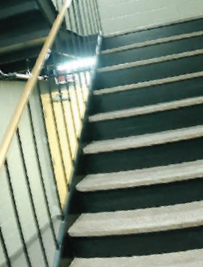Travel safely
Now that you’re a parent, you have not only your own safety to think of, but that of your children. Some things cannot be avoided, but do what you can to prevent a road accident from harming or killing your child.
- Safety seats. In case an accident occurs, nothing can keep your children as safe as a properly fitted and installed child safety seat will. These seats may make the difference between life and death. There are different types of seats for children of different ages and sizes so make sure you buy the right seat for your child. Infant seats are for infants up to 12 months old (or who weigh 10 kg) and are fitted facing the rear of the car. Convertible car seats are for children aged between 1 and 4 years and can be installed either forward- or rear-facing, depending on the child’s weight. Booster seats are for children aged 4-10 years old or who weigh between 18 kg and 22 kg. These seats raise children to a height at which it’s safe for them to use the adult seat belts. If you are not sure what seat to buy, ask your paediatrician. Whether you’re taking a 5-minute drive to the convenience stores or visiting your parents in your hometown, child safety seats are a must to keep your little ones safe.
- Buckle up. Do it for yourself; do it for the children, too. As stated in the previous point, young children must be placed in car seats. If your child has outgrown the booster seat, he is now tall enough to use the adult seat belt in the back seat. No child under 12 should sit in the front passenger seat. At all times, ensure that driver and all passengers are safely buckled up.
- Keep to the speed limit. Even if you left two hours behind schedule, don’t succumb to the temptation of speeding. If it is raining, visibility will be low and you may need to drive a little slower to give you more time to recover in case you come across obstacles on the road such as fallen tree branches and stalled cars.
- Stay alert. Take a break at least once an hour by pulling into a highway rest stop. If you feel sleepy, take a 15- to 30-minute nap. Stopping frequently will also give children the chance to stretch their legs, which will prevent restlessness and consequent grumpiness. If possible, take turns at the wheel with your spouse or other travelling companions who have valid driving licences. This may mean you have to take over at entertaining the children, though!
- Watch out. If others on the road are driving dangerously or recklessly, keep your distance from them. If you turn into a rest stop to get away and they follow you, do not get out of your vehicle! Choose bigger rest stops that have more motorists around, and don’t unlock or open the doors if anyone suspicious is loitering near where you’re parked.
- Lock the doors. This isn’t only necessary when your car is stationary. If one of you fails to close a door tight, the lock will be able to prevent it from swinging open while you move (to some extent). To be extra sure, walk round the car making sure all doors are closed securely before you get in, yourself. If your car comes with a child lock feature, use it.
Eat safely
Celebrations (especially Malaysian ones!) are usually a time for great feasting. You may appreciate this time to catch up with your long-lost cousin over the family reunion dinner, but keep an eye on the children’s eating as well.
- Forbid playing while eating. This includes acting up at the table, participating in food fights, and playing with food. If your child is full, allow him to leave the dining table.
- Watch what he eats at meals. However adept your child is at eating on his own, he may be unfamiliar with some of the foods served. Look out for tiny bones, seeds or pits in what he’s eating. To be safe, cut all his food into bite-size pieces and be very careful to remove all potentially harmful objects.
- Watch what he eats between meals. Some popular festive snacks are not appropriate for young children as they carry a risk of injury by choking, or poking or scratching the mouth, gums and throat. These include:
- Biscuits containing whole or powdered nuts
- Pickled fruits (most do not have their seeds/pits removed)
- Sweets and desserts with a sticky or powdery texture (eg dodol, kacang tumbuk, rava ladoo, tong yuen and traditional kueh using glutinous rice as a base)
- Jelly sweets and jelly, including agar-agar and konnyaku
Play safe, stay safe
Visiting the old family home, or where your parents now live in your hometown, will bring a wash of nostalgia from your own childhood. While you catch up with your now grown siblings and cousins, keep an eye on the younger generation as they play:
- Keep children away from stoves, fires and charcoal pits used for cooking.
- If a wide age group is represented, make sure the oldest children know not to play rough with their younger cousins and to tell their elders as soon as any falls or other accidents occur. Don’t leave young children unsupervised and, regardless of their ages, check on them frequently.
- Do not allow any fireworks or firecrackers at all. They carry a risk of burns and wounds. Even sparklers are not safe at all as they can reach temperatures more than 10 times hotter than boiling water.
- Forbid children from going near natural or man-made ponds, lakes and streams.
- Keep young children away from staircases, especially those without handrails. Either carry them up/down or guide them with your hand as they walk up/down.
- Keep the doors to balconies locked with child-safe locks.






Comments